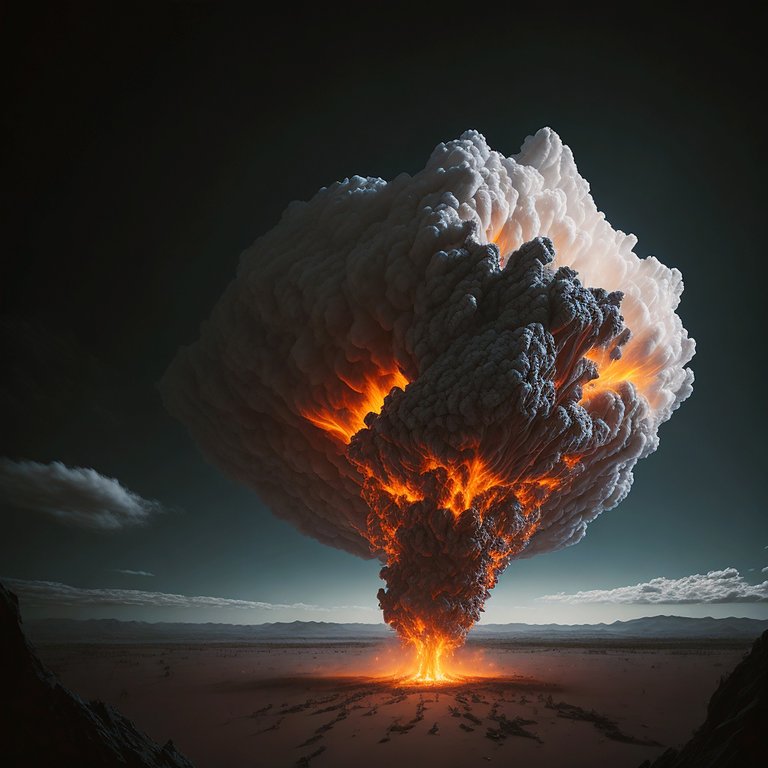The magnitude of the First World War has never been seen before, and therefore the war was called "the war to end all wars." It was an idealistic term, but just 21 years later, it became a sardonic term due to the start of the Second World War.
Just a year before the start of the second war, the then-British Prime Minister, Neville Chamberlain, who had just arrived from Germany with papers in his hands showing the Anglo-German Declaration, famously stated before the public audience,
"I have returned from Germany with peace for our time."
The phrase "peace for our time" has been famously misquoted as "peace in our time" and can be considered perhaps the greatest ironic speech ever made in the history of mankind. The war that ensued, which was the Second World War, claimed the lives of more than 70 million people.
In September of this year (2024), it will be 79 years since the end of World War II. Despite that, the world still reels from the effects of the war; in fact, I would say the world order is built on the result of the war. Albert Einstein (arguably the world's most famous scientist) once said during an interview,
"I know not with what weapons World War III will be fought, but World War IV will be fought with sticks and stones."
Perhaps you think that for 78 years the world has known peace or they've learned the lessons from the two world wars; then you are wrong. There have been numerous wars, and currently speaking, wars are being fought.The world might have heaved a sigh of relief after passing through the Cold War with the major belligerents (USA and Soviet Union) not accosting one another or without the use of nuclear war in any war. The Cold War fueled the arms race like never before; new equipment for death was being created, and better and more precise ways to deliver a nuclear warhead were developed.
Perhaps in early 2000, the world can be described as being in a lull. It was the early days of Putin's power, China was still building up, and America was the sole big man on the world's stage, but the lull was apparently disturbed by the ongoing conflict in the Middle East and the war on terrorism.
But now, things have changed. China has the largest naval boats (although not yet blue water); it is competing with America in terms of economic power, flexing its muscles in the South China Seas, and planning an invasion of Taiwan. Russia is locked in a war with its neighbour, Ukraine, and most of the bridges that once linked it with the West are broken. There are numerous hotbeds in the world where a potential clash can lead to large-scale wars between allies.
I believe that the next world war, or perhaps the next Cold War war, will be fueled by technology and, most importantly, artificial intelligence. Right now, there is a chip war between the USA and China, and there is also a war on information with so much fake news out there.
In this age, anything can be weaponized, and that is why there is fear among the American government concerning the app "Tiktok" due to its Chinese origin. While most of us are seeing the rise of artificial intelligence in civil society, the military isn't overlooking the potential AI offers for bringing about victory on the battlefield.
Since almost everything is computerized in this current epoch, one battle that would be fought would be the battle of the algorithm and also the fear of an emerging technology that can lead to world denomination, etc.
Conclusion
Sometimes what we see in our normal sci-fi movies isn't just fictional; they also speak about the future, just like how most of our technology today has been envisaged by sci-fi movies more than 60 years ago. The world is going into a digital contest also, and the wars will still have their human casualties. Unlike Neville Chamberlain, "I don't see peace in our time."
©Ajanaku Ifeoluwa (AI)
7th of April, 2024

The concept of another war sounds scary with the extent of technological advancement the world has seen.
The casualties would be overwhelming and even the winner of the war may have no reason to celebrate.
I really hope it doesn't happen, but these guys developing all these military power really wish to use them, hence at the slightest provocation, they threaten war.
Yeah, many people think building impressive military weapons deter wars but the truth is that most times it leads to war.
I work in a senior home in Austria. Many people there fought in WW2... It's sad to see some of them now have dementia and live in the past, believing the leader of Germany was their savior and did good for the world. There's a 95-year-old man who is not forgetful. Every time I enter his room, he salutes like they did in Germany back then. He always talks about how the world would be better if Germany had won. It's difficult for me to listen to this. I'm a foreign girl in a country I wasn't born in, and they never accepted foreigners living in their country. What bothers me the most is that he is really nice, but he loves to talk about those times and how he fought, flying his airplane and dropping bombs 🤦♀️🤦♀️🤦♀️ So no, we didn’t learn anything…
Yeah, I would say we most times don't learn from the past. If we do most of the wars after world war 2 would have been avoided. Thanks I appreciate the profound comment.